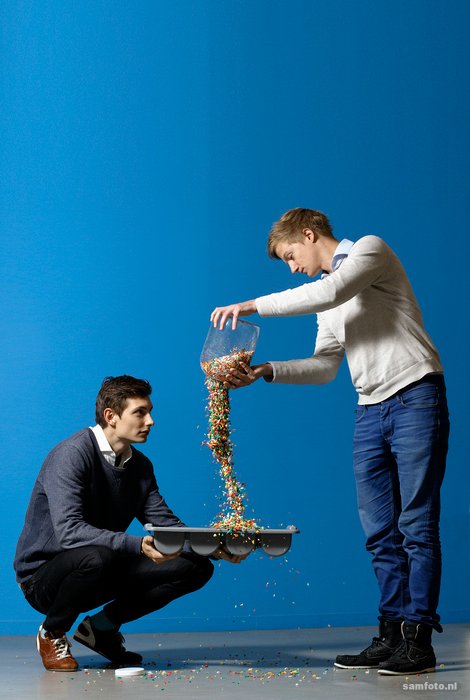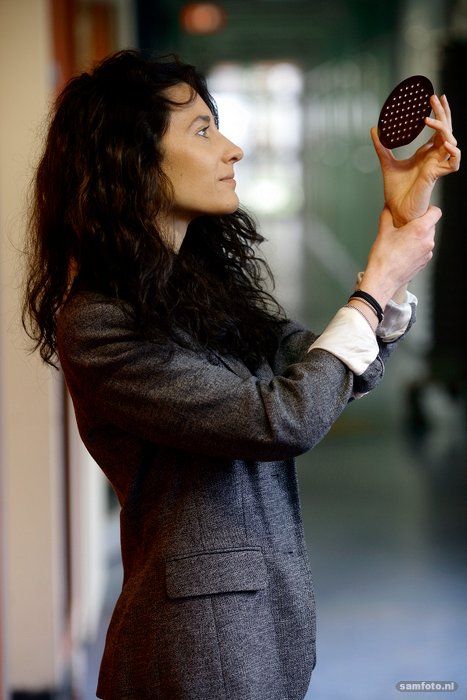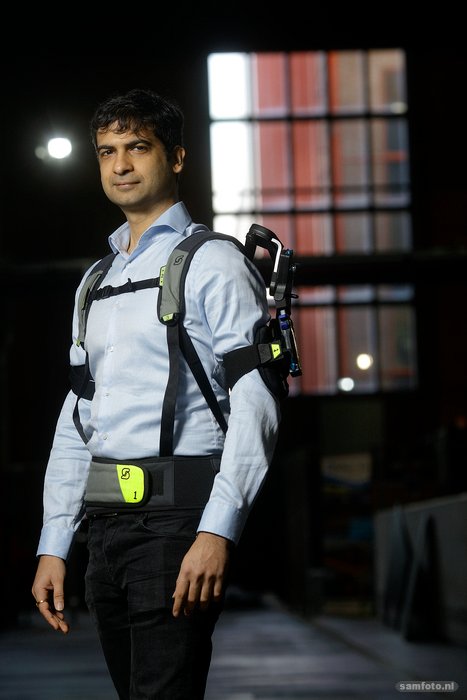How do you get funding?
A good idea alone won’t give you a successful company. You also need money. So, where do you get it from? Three start-ups give advice.
NWO funding enabled us to do a feasibility study
Polytential developed the Virtual Chemist, a system that analyses plastic waste. A special hyperspectral camera scans a bag of plastic samples before an algorithm analyses the chemical composition. A recycler can then decide how best to use the plastic, and which additives or plastics need to be mixed with the product to recycle it.
“An understanding of the composition of the material and the contaminants in it is essential for achieving top-quality recycled plastic”, explains Jeroen Cevaal. He founded the company in 2016 with Yuri van Engelshoven.
Apart from some prize money from pitching competitions, the first serious financial support came from scientific research funder NWO. “NWO funding enabled us to do a feasibility study, exploring both the technical and economic feasibility of the concept.”
The company is now focusing on scaling up. “We’re also investing in algorithms and new applications for the recycling industry. We expect to make our first profits in 2022.”
“My advice to entrepreneurs starting out: the customer comes first. Start talking to potential customers as early as possible in order to validate your assumptions. The feedback you get will be extremely valuable for the development process.”
| Company: | Polytential |
| Founders: | Jeroen Cevaal and Yuri van Engelshoven |
| Degree: | Management of technology (Cevaal), Environmental technology (Van Engelshoven) |
| Product: | The Virtual Chemist, a device that analyses plastic waste |
| Founded in: | 2016 |
| Employees: | Eight FTE |
| Profits: | None, still in development phase |
| In five years' time: | The company should be profit-making and offering a wider range of services to the recycling industry. |
Start-ups qualify for so many grants
“When we expect to make a profit? It will take another few years”, says CEO and co-founder of BI/OND, Cinzia Silverstri. “According to my forecast, we’ll break even by 2025. Until then, we’ll be supported by external investors.”
‘We’ is BI/OND, the company she set up with fellow doctoral candidates Nikolas Gaio and William Fausto Quiros Solano. A mistake in an experiment led to a new discovery in the development of organs-on-chips. “It’s like a mini-organ in a chip. It sounds incredible, but it’s simple: we grow a patient’s cell on a piece of hardware. The hardware nourishes, stimulates and monitors the cells. Our aim is to accelerate the drug design process.”
Thanks to government funding, the team developed an initial prototype and did a feasibility study. “For that, we got € 40,000 in NWO funding. We also participated in the EIT Health Validation programme, TU Delft supports us where possible and the NWO provided a loan for the next phase of product development. Start-ups, especially in the tech industry, qualify for so many grants. It’s really worth checking them all out.”
| Company: | BI/OND |
| Founders: | Cinzia Silvestri, Nikolas Gaio and William Fausto Quiros Solano |
| Degree: | Microelectronics (all three PhD) |
| Product: | Organ-on-chips (OOCs) |
| Founded in: | 2017 |
| Employees: | Four full-time and four interns |
| Profits: | None, still in development phase |
| In five years' time: | Two products on the market and close collaboration with pharmaceutical companies. |
Don’t be too eager to give away your shares
The old RDM warehouse is home to numerous companies, including Skelex. It’s founder ir. Gaunav Genani (IDE, 2012) puts on the Skelex-360 harness. It feels like your arms are weightless, he says.
Over 550 examples of this latest model have already been sold. Customers include the automobile and aircraft industry, finishing companies, railways, shipyards and defence. In the year ahead, Skelex aims to triple revenue.
The first company’s first backer, apart from ‘friends, fools and family’, was a bank that provided a € 15,000 loan thanks to mediation by YES!Delft. This was followed a year later by a € 50,000 STW grant that he applied for with Prof. Johan Molenbroek. Genani even invested his savings into the company. But the money had run out in a year. Skelex then secured investment from VenturesOne, which became a joint shareholder. A third shareholder came on board last year: production and assembly company VDL, which now assembles the harnesses.
Genani recommends that start-ups combine different sources of finance (investors, bank and backers). He warns against being too eager to give away shares because it weakens your own influence in the company.
| Company: | Skelex |
| Founders: | Gaunav Genani |
| Degree: | Industrial Design Engineering (2012) |
| Product: | Skelex-360, exoskeleton to support the upper arms |
| Founded in: | 2013 |
| Employees: | Ten permanent and five flexible |
| Profits: | > € 1.5 million |
| In five years' time: | Various products to support neck and arms, including bionic. |


